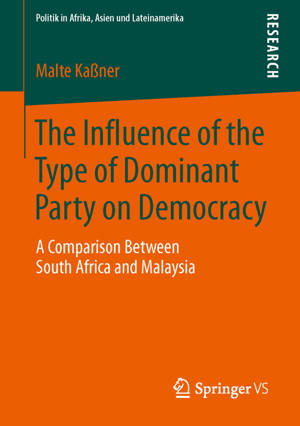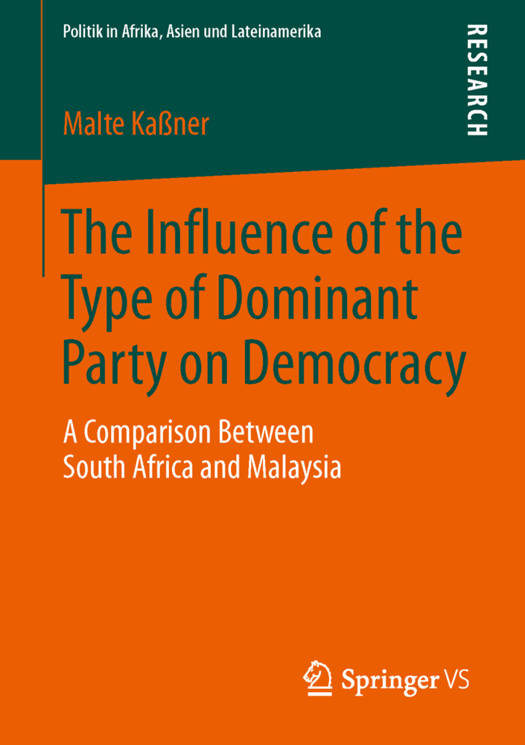
Je cadeautjes zeker op tijd in huis hebben voor de feestdagen? Kom langs in onze winkels en vind het perfecte geschenk!
- Afhalen na 1 uur in een winkel met voorraad
- Gratis thuislevering in België vanaf € 30
- Ruim aanbod met 7 miljoen producten
Je cadeautjes zeker op tijd in huis hebben voor de feestdagen? Kom langs in onze winkels en vind het perfecte geschenk!
- Afhalen na 1 uur in een winkel met voorraad
- Gratis thuislevering in België vanaf € 30
- Ruim aanbod met 7 miljoen producten
Zoeken
The Influence of the Type of Dominant Party on Democracy
A Comparison Between South Africa and Malaysia
Malte Kaßner
€ 83,95
+ 167 punten
Omschrijving
Dominant parties and democracies - are they really strange bedfellows? Malte Kaßner sheds light on the relation between one-party dominance and democracy from a comparative perspective. The study examines the key question how different types of dominant parties influence democracy in multicultural societies with the help of two case studies: South Africa and Malaysia. Both countries are characterized by an ethnically, linguistically and religiously plural society. The author analyses the two dominant parties African National Congress (ANC) and United Malays National Organization (UMNO) and their implications on democracy in the two countries. The outcome suggests that one-party dominance per se cannot be assessed as beneficial or harmful for democratic development. Rather, dominant parties deserve a stronger analytical differentiation. Causal patterns contribute to such a differentiation.
Specificaties
Betrokkenen
- Auteur(s):
- Uitgeverij:
Inhoud
- Aantal bladzijden:
- 362
- Taal:
- Engels
- Reeks:
Eigenschappen
- Productcode (EAN):
- 9783658044374
- Verschijningsdatum:
- 12/12/2013
- Uitvoering:
- Paperback
- Formaat:
- Trade paperback (VS)
- Afmetingen:
- 148 mm x 210 mm
- Gewicht:
- 503 g

Alleen bij Standaard Boekhandel
+ 167 punten op je klantenkaart van Standaard Boekhandel
Beoordelingen
We publiceren alleen reviews die voldoen aan de voorwaarden voor reviews. Bekijk onze voorwaarden voor reviews.









